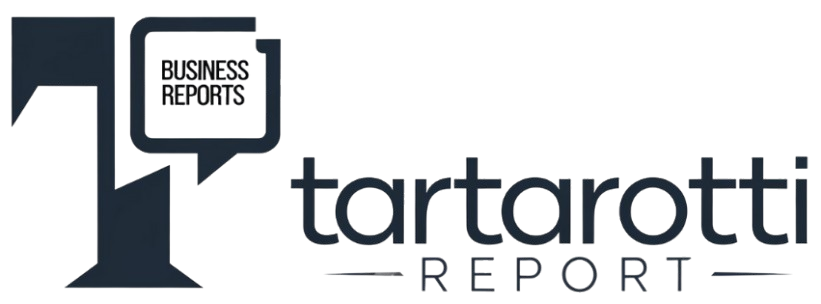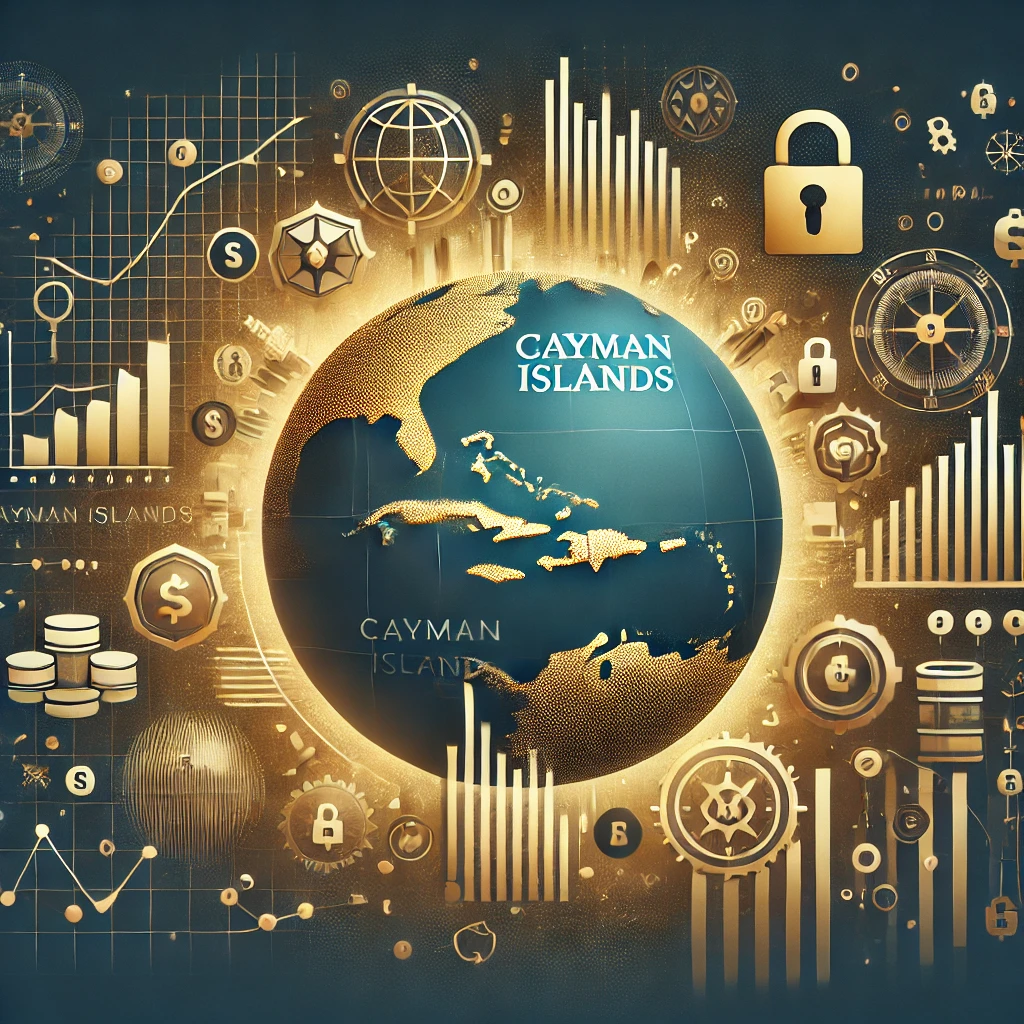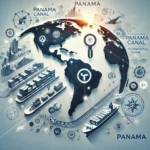Introduction:
In the global landscape of offshore jurisdictions, the Cayman Islands stands out as an elite financial center, recognized for its sophistication, stability and robust infrastructure. As the fifth largest financial center in the world, the Caymans offer a unique environment for the establishment of international holding companies and investment structures.
Recent figures show that the Cayman Islands are home to more than 100,000 registered companies, including the majority of the world’s hedge funds. This impressive volume is testimony to the trust that global investors and financial institutions place in this jurisdiction.
In this article, we will explore in depth the benefits and opportunities of establishing a holding company in the Cayman Islands, with a particular focus on sophisticated investment structures, asset protection and tax efficiency. We will address the advantages for both non-US tax residents and residents, highlighting how Cayman structures can be a crucial component in high-level international financial strategies.
Part 1: Ready to Roll 🚀 – Basic Strategies and Practical Actions
Part 1, “Ready to Roll”, offers practical actions and immediate advice for entrepreneurs who need quick and effective guidance.
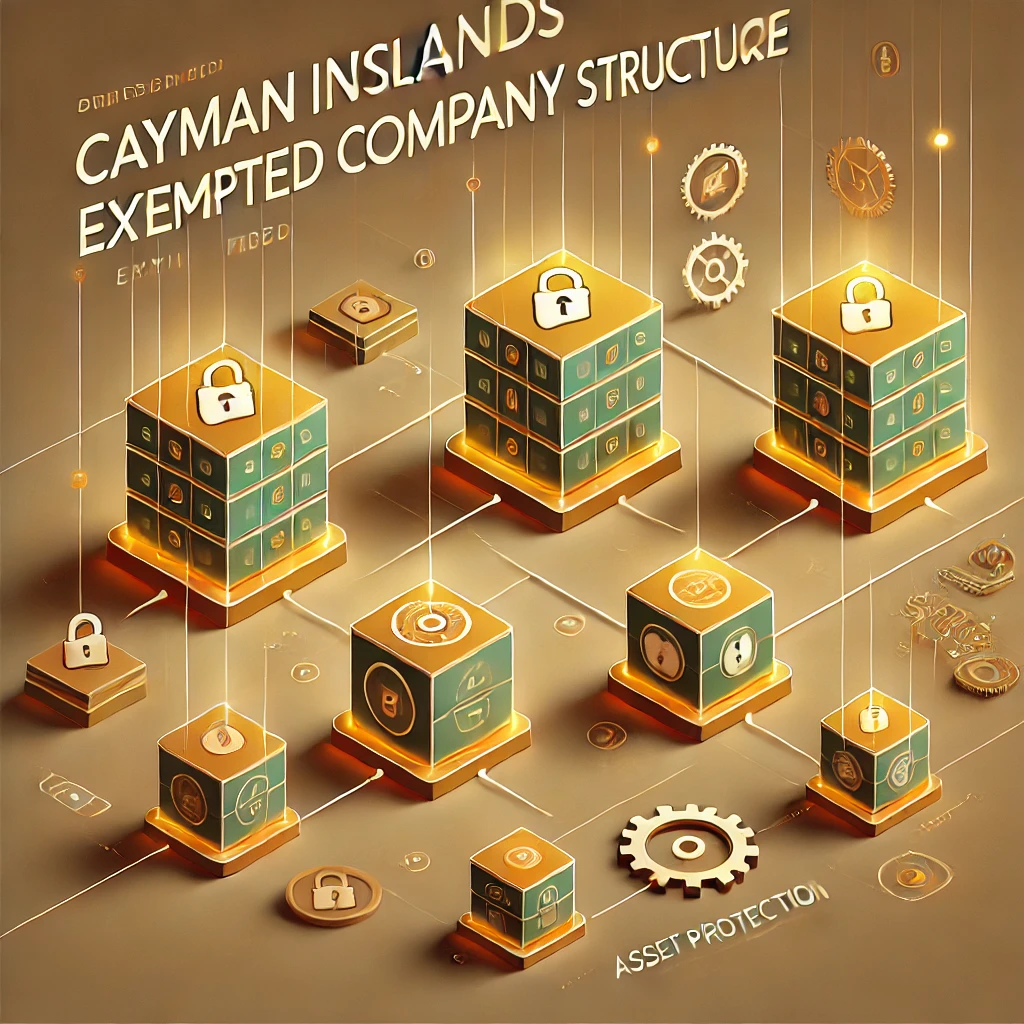
1. Fundamentals of Holding Structures in the Cayman Islands
Importance of a Stable Regulatory Environment
The Cayman Islands are recognized globally for their stable and business-friendly regulatory environment, providing a solid foundation for international holding companies.
Recommended Initial Methods
1.Basic Structuring: Start by establishing an Exempted Company or a Limited Liability Company (LLC) in the Caymans. These structures offer flexibility and significant tax benefits.
2. Asset Segregation: Use the holding company to hold global investments, intellectual property or stakes in other companies, benefiting from Cayman’s tax neutrality.
3. Corporate Governance: Implement a robust governance structure, taking advantage of Cayman’s reputation for compliance and transparency.
2. Sophisticated Investment Strategies
Tips for Structuring Efficient Investment Vehicles
1. Investment Funds: Cayman is a global leader in fund structures. Consider establishing a regulated or unregulated investment fund, depending on your strategy.
2. Master-Feeder Structures: Implement master-feeder structures to optimize international investments and cater to different investor profiles.
3. Special Purpose Vehicles (SPVs): Use SPVs for risk isolation in complex transactions or private equity investments.
Key considerations in line with international standards
– Be aware of reporting obligations under FATCA and CRS when structuring your Cayman investments.
– Keep up to date with CIMA (Cayman Islands Monetary Authority) regulations to ensure ongoing compliance.
3. Asset Protection and Succession Planning
How to Develop an Effective Asset Protection Strategy
1.Cayman Islands trusts: Use sophisticated Cayman trusts for asset protection and long-term succession planning.
2. Foundations: Consider using Cayman foundations as an alternative to trusts, offering additional flexibility in certain situations.
3. Hybrid Structures: Combine different entities (e.g. trust with an underlying LLC) to maximize protection and flexibility.
The Importance of Cultural Adaptation and Consistency
– Maintain a consistent strategy, but be prepared to adapt to global regulatory changes.
– Consider cultural nuances when structuring international succession plans, especially for families with a global presence.
Part 2: Deep Dive 🤿 – Technical Depth in Advanced Strategies
Part 2, “Deep Dive”, provides in-depth analysis for those who want to dive into the technical and complex aspects of international finance.

4. Detailed Analysis of Tax and Regulatory Benefits
In-depth Exploration of Technical Aspects
1. Neutral Tax Regime: Cayman does not impose taxes on income, capital gains, inheritances or donations for offshore entities.
2. Tax Blocker Structures: Use Cayman entities as “tax blockers” in international investment structures to optimize tax efficiency.
3. Flexible Regulation for Funds: Take advantage of Cayman’s flexible regulatory regime for funds, which allows for a variety of structures from open-ended funds to private equity.
Case Study
Structuring a Global Investment Fund
A Brazilian asset manager established an investment fund in Cayman to attract global investors. The structure allowed
– Access to a diversified base of international investors.
– Implementation of sophisticated investment strategies without jurisdictional restrictions.
– Tax optimization for investors from multiple jurisdictions.
Result: The fund grew from US$50 million to US$500 million in assets under management in three years, with investors from more than 20 countries.
5. Implementation of Advanced Corporate Governance Structures
Recommendations for Efficient Management Tools
1. Regulatory Compliance Systems: Implement specialized tools to ensure compliance with CIMA regulations and global standards.
2. Investment Management Platforms: Use advanced portfolio management and reporting software for complex funds and investment structures.
3. KYC/AML solutions: Adopt robust Know Your Customer and Anti-Money Laundering systems to maintain the integrity of operations.
Tips for maximizing the use of these resources
– Establish a governance committee with international expertise to oversee operations and strategy.
– Implement regular auditing processes by internationally renowned firms to maintain credibility and transparency.
6. Advanced Asset Protection and Privacy Strategies
Techniques for Identifying and Managing Risks
1. Use of Layered Structures: Create multiple layers of protection using combinations of Cayman entities and other jurisdictions.
2. Implementing Firewall Clauses: Use robust Cayman firewall provisions to protect assets against foreign claims.
3. Risk Compartmentalization Strategies: Distribute assets and operations among multiple entities to isolate risks.
Action Plans for Adverse Situations
– Develop detailed contingency plans for litigation scenarios or adverse regulatory changes.
– Establish protocols for rapid restructuring or relocation of assets if necessary.
7. Innovations in Financial and Investment Structures
Discussion on Emerging Trends
1.Cryptoasset Structures: Explore Cayman’s potential as a leading jurisdiction for cryptoasset and blockchain funds.
2. ESG Investment Vehicles: Develop structures in Cayman focused on environmental, social and governance (ESG) investments.
3. Asset Tokenization Platforms: Use Cayman’s regulatory flexibility to structure traditional asset tokenization platforms.
Tips for Maintaining Flexibility
– Keep abreast of the latest innovations in financial regulation in Cayman and globally.
– Cultivate relationships with specialized service providers in the Caymans to stay ahead of trends in international financial structuring.
Conclusion
Establishing a holding company in the Cayman Islands offers an impressive range of benefits for sophisticated investors and entrepreneurs. The combination of a stable regulatory environment, world-class financial infrastructure and tax neutrality makes the Caymans a jurisdiction of choice for complex investment structures and high-level asset protection.
However, it is crucial to approach the use of structures in the Caymans with a high degree of sophistication and responsibility. The global regulatory landscape is constantly evolving, with increasing emphasis on transparency and economic substance. Cayman has remained at the forefront of these changes, continually adapting to maintain its position as a financial center of trust and compliance.
For those seeking a world-class platform for their global financial strategies, a holding company in the Cayman Islands, when structured and managed properly, can offer unparalleled benefits. As with any sophisticated financial strategy, the guidance of experts in international financial law, offshore accounting and estate planning is indispensable for successfully navigating this complex and highly regulated environment.
When considering establishing a holding company in the Cayman Islands, remember: the goal is not just tax optimization or asset protection, but the creation of a sophisticated and compliant structure that can withstand the challenges and seize the opportunities of the ever-changing global financial landscape. With proper planning and careful execution, a Cayman holding company can be a powerful tool for leveraging global investments, protecting assets and creating lasting legacies in an increasingly complex financial world.
FAQs
1. Q: What are the typical costs associated with maintaining a holding company in the Cayman Islands?
A: Annual costs generally include:
– Annual registration fee: Approximately $850 USD for a standard exempt company
– Registered agent costs: Between $1,500 and $3,000 USD per year
– Director fees: Variable, but can reach $5,000-$10,000 USD per professional director
– Compliance and accounting costs: Can vary from $5,000 to $20,000 USD annually, depending on the complexity of the structure
Total annual investment can range from $10,000 to $50,000 USD or more, depending on the complexity of the structure and the services required.
2. Q: How do the Cayman Islands compare to other offshore jurisdictions in terms of reputation and compliance?
A: The Cayman Islands are generally considered to be one of the most reputable and compliant offshore jurisdictions:
– Strong financial regulation overseen by CIMA
– Adherence to international transparency standards, including FATCA and CRS
– Legal system based on English common law, offering predictability and stability
– Sophisticated financial infrastructure with the presence of major global financial institutions
Compared to jurisdictions such as BVI or Nevis, Cayman generally offers a higher level of sophistication and is often preferred for more complex and larger-scale investment structures.
3. Q: What are the main considerations when establishing an investment fund in the Cayman Islands?
A: When establishing a fund in the Caymans, consider:
– Type of fund: Regulated (registered or licensed) vs. unregulated
– Structure: Open vs. closed, master-feeder, etc.
– Registration requirements: Depending on the type and size of the fund
– Governance: Appointment of directors (including independent directors)
– Service providers: Administrator, custodian, auditor, etc.
– Reporting requirements: For investors and regulators
– Exit strategy and liquidity for investors
It is crucial to work with lawyers and administrators specializing in Cayman funds to navigate this process efficiently.
4. Q: How do the recent changes in economic substance legislation affect holding companies in the Cayman Islands?
A: The economic substance laws introduced in Cayman require certain entities to demonstrate substantial economic presence in the jurisdiction. This may include:
– Maintaining a physical presence in Cayman
– Employing qualified personnel locally
– Demonstrating adequate operating expenses in the jurisdiction
– Carrying out core income-generating activities in Cayman
For pure holding companies, the requirements may be less onerous, but it is essential to carefully evaluate the structure and operations to ensure compliance.
5. Q: What are the advantages of using a trust in the Cayman Islands for succession planning?
A: Cayman trusts offer several advantages:
– Flexibility: Cayman laws allow for a wide variety of trust structures
– Protection from creditors: STAR (Special Trusts Alternative Regime) trusts offer strong protection
– Confidentiality: There is no public register of trusts
– Perpetuity: Trusts can be established without time limit
– International recognition: Cayman trusts are widely recognized and respected globally
For complex international succession planning, Cayman trusts can offer sophisticated and highly customizable solutions.
6. Q: How do the Cayman Islands deal with the automatic exchange of information (CRS and FATCA)?
A: The Cayman Islands is fully compliant with both the Common Reporting Standard (CRS) and the Foreign Account Tax Compliance Act (FATCA). This means that:
– Financial institutions in the Caymans are required to collect and report information on financial accounts of foreign tax residents.
– Information is automatically exchanged with participating jurisdictions on an annual basis.
– The Caymans have information exchange agreements with more than 100 countries.
To maintain compliance:
– Entities in the Caymans must implement rigorous due diligence procedures.
– It is crucial to keep accurate and up-to-date records of beneficial owners.
– Consider the impact of information exchange when structuring your holdings and investments.
7. Q: What are the main differences between an Exempted Company and an LLC in the Cayman Islands?
A: Exempted Companies and LLCs in the Cayman Islands have distinct characteristics:
Exempted Company:
– Traditional share structure
– Requires at least one director
– Greater global familiarity, especially for fund structures
– Can issue different classes of shares
LLC (Limited Liability Company):
– More flexible structure, similar to US LLCs
– Managed by members or managers
– Greater flexibility in profit distribution and governance
– Popular for joint ventures and holding structures
The choice between the two will depend on the specific objectives, the desired management structure and tax considerations in other relevant jurisdictions.
8. Q: How does the Cayman Islands position itself in relation to the regulation of crypto-assets and blockchain?
A: The Caymans have taken a progressive but cautious approach to crypto-assets and blockchain:
– They introduced the Virtual Asset Service Providers (VASP) Act in 2020
– Provided a favorable regulatory environment for blockchain-related businesses
– Attract a growing number of ICOs (Initial Coin Offerings) and cryptoasset funds
– CIMA is actively involved in supervising activities related to virtual assets
For companies in this sector:
– It is essential to obtain proper licensing under the VASP regime
– Consider global regulatory implications when structuring crypto-asset transactions in Cayman
– Stay up to date on regulatory developments in this rapidly changing space
9. Q: What are the considerations for technology companies looking to establish a presence in the Cayman Islands?
A: For technology companies, Cayman offers several advantages:
– Favorable tax environment for intellectual property and global revenues
– Special Economic Zone (SEZ) with world-class IT infrastructure
– Flexible regulatory regime for startups and innovative companies
– Access to global capital and potential investors
Important considerations:
– Assess the economic substance requirements for your specific operation
– Consider tax implications in target markets for products/services
– Explore SEZ benefits for physical operations in the Caymans
– Implement robust intellectual property protection strategies
10. Q: How do the Cayman Islands facilitate international estate planning for families with global assets?
A: The Caymans are ideal for sophisticated international estate planning:
– They offer flexible trust structures, including STAR trusts and purpose trusts
– They allow the creation of foundations, an alternative to trusts for certain jurisdictions
– Facilitate the structuring of family offices for multi-generational wealth management
– Provide a stable environment for family holding companies and investment vehicles
Advanced strategies include:
– Use of hybrid structures combining trusts, foundations and companies
– Implementation of customized family governance solutions
– Structuring private family investment vehicles (PFICs)
– Cross-border succession planning considering multiple jurisdictions
11. Q: What are the compliance implications for US companies using structures in the Cayman Islands?
A: US companies should be aware of several compliance considerations:
– GILTI (Global Intangible Low-Taxed Income) rules may affect the taxation of controlled entities in the Caymans
– FBAR and FATCA reporting requirements for offshore financial accounts
– CFC (Controlled Foreign Corporation) regulations may impact structuring
– Potential “substance over form” implications in IRS audits
Recommendations:
– Maintain detailed documentation of all transactions and business decisions
– Implement robust transfer pricing policies
– Carefully consider ownership and control structure
– Consult US international tax experts regularly
When navigating the complex environment of international holdings and investments through the Cayman Islands, it is crucial to maintain a holistic approach that considers not only the immediate benefits, but also the long-term implications in terms of compliance, reputation and overall business strategy. The Caymans offer a sophisticated and well-regulated environment, but require a corresponding level of diligence and expertise in implementing and maintaining corporate and investment structures.
The key to success lies in balancing tax optimization and structural efficiency with sound corporate governance and full compliance with evolving global regulatory standards. With proper planning and the support of experienced professionals, the Cayman Islands can serve as a powerful platform for achieving international financial and business objectives in an effective and compliant manner.
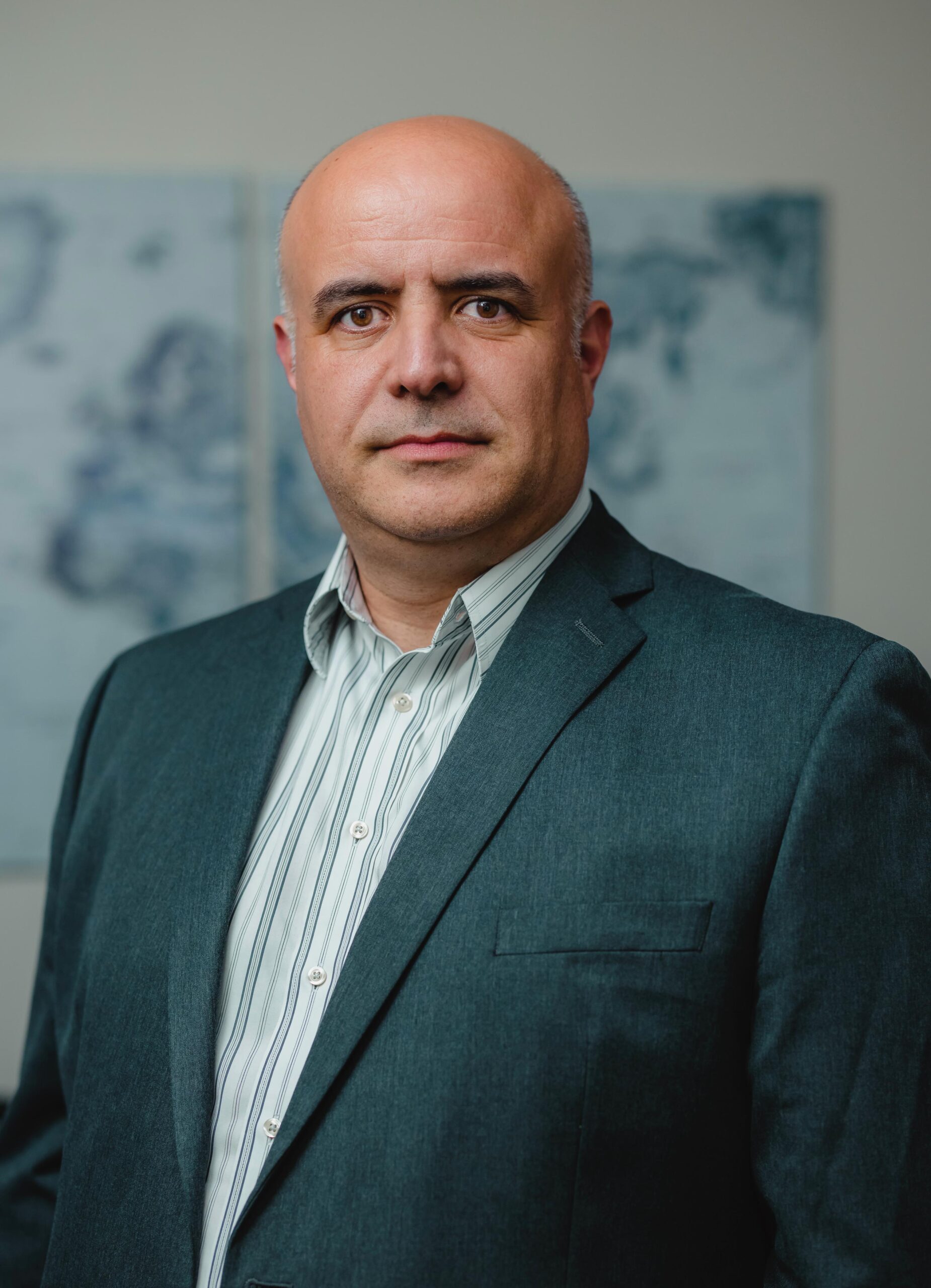
Member of the IMA (Institute of Management Accountants) – USA
Member of the AICPA (American Institute of CPAs) – USA
Member of AAII (American Association of Individual Investors) – USA
Member of AAA (American Accounting Association) – USA
Member of the FMA (Financial Management Association) – USA
These associations not only attest to Kleyton’s commitment to professional excellence, but also ensure that his knowledge is always at the forefront of international financial and accounting practices.
With a robust academic background, including a Bachelor’s degree in Accounting and MBAs in International Finance and Accounting, as well as in International Business, Kleyton offers a unique and comprehensive perspective on the global business landscape.
Through the Tartarotti Report, Kleyton invites visionary entrepreneurs and executives to connect, explore opportunities for collaboration and, together, successfully navigate the complex world of international corporate finance.
